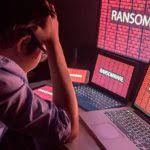Greensburg Woman in Ransomware Data Breach What We Can Learn from Barbara Botti’s Experience.
A recent incident involving Barbara Botti, a resident of Greensburg in a ransomware attack, serves as a stark reminder of the vulnerabilities that exist in our digital age.
The Ransomware Incident That Shook a Community
Barbara Botti received an alarming letter from the U.S. Department of Justice, a correspondence that would send waves of concern through anyone’s household. The letter revealed that her personal data including her Social Security number, date of birth, and sensitive health information may have been compromised due to a ransomware attack on a federal government contractor. The attack not only highlighted the security lapses at a crucial level of our national infrastructure but also raised pressing questions about the privacy of individuals who trust these systems.
What Happened?
In the wake of the ransomware attack, hackers typically deploy malicious software to encrypt data and demand a ransom for its release. While such attacks have become increasingly common, their implications stretch far beyond the immediate victim. For Botti, the ramifications of this breach are profound; her personal information is now in the hands of cybercriminals, potentially exposing her to identity theft and other fraudulent activities.
The Bigger Picture
Botti’s experience is far from an isolated incident. Data breaches are on the rise, affecting millions worldwide and not just individuals but also organizations, businesses, and government entities. The Federal Trade Commission recently reported an alarming increase in data breaches, underscoring the urgent need for improved cybersecurity measures across the board.
In Botti’s case, the breach occurred at a contractor connected to the federal government, illustrating that even the most trusted entities are not immune to cyber threats. This breach raises critical questions: How secure are government contractors? What protections are in place to safeguard sensitive data? And how can individuals better protect themselves in a world where their information can be leaked or stolen without their knowledge?
Steps to Take After a Ransomware Data Breach
For those like Barbara Botti who find themselves victims of a data breach, immediate action is essential. Here are some crucial steps to consider:
- Monitor Financial Statements: Keep a close eye on bank accounts and credit card statements for any unauthorized transactions. Report any suspicious activity to your financial institution right away.
- Place a Fraud Alert: Contact one of the major credit bureaus (Experian, TransUnion, or Equifax) to place a fraud alert on your credit report. This makes it harder for identity thieves to open accounts in your name.
- Consider a Credit Freeze: A more drastic measure is to freeze your credit, which prevents anyone from accessing your credit report until you lift the freeze.
- Review Credit Reports: Obtain free copies of your credit reports at AnnualCreditReport.com. Check for inaccuracies or unfamiliar accounts.
- Secure Personal Information: Update passwords, especially if you used any linked accounts that may have been compromised. Use strong, unique passwords for different accounts.
- Stay Informed: Follow the developments of the breach. Organizations often provide additional details on their websites, and it’s important to remain aware of any further implications.
Conclusion
Barbara Botti’s experience is a wake-up call for all of us. As threats to our privacy and security grow more sophisticated, so must our awareness and preparedness. By taking proactive steps to protect our personal information and advocating for stronger cybersecurity measures within government agencies and contractors, we can help foster a more secure digital environment.
As we navigate this landscape, let Botti’s unfortunate experience remind us of the importance of vigilance and the steps we can take to secure our personal information against the ever-present threat of data breaches. It is not just about being a victim; it’s about empowering ourselves and educating others to help prevent such incidents in the future.








